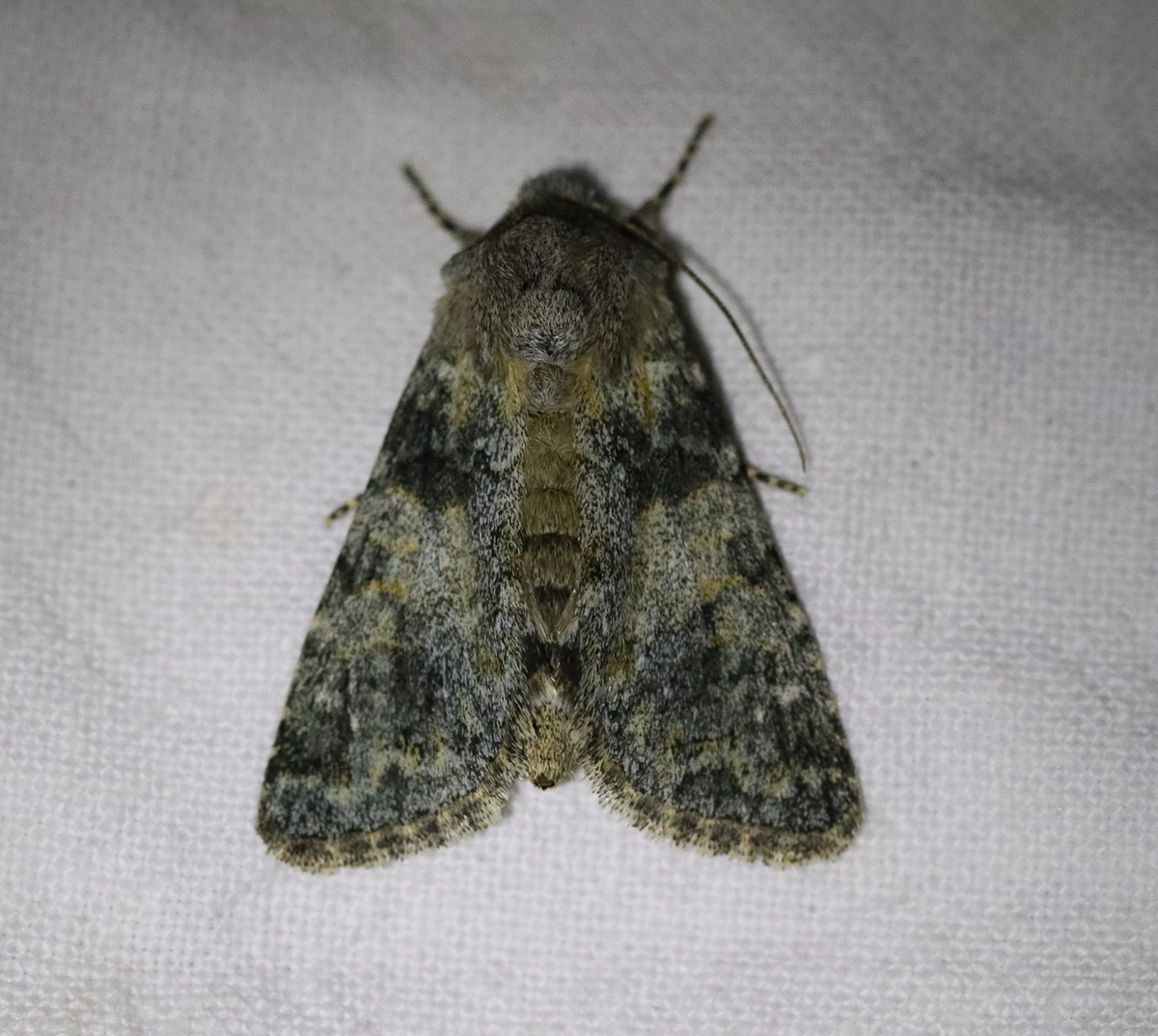
Photo © Jason Grant
Hadena caesia, also called the grey, is a species of moth of the family Noctuidae. It has a scattered distribution all over Europe (see subspecies section).
The wingspan is 32–37 millimetres (1.3–1.5 in). Forewing blue grey, with a furry look, caused by dusky grey irroration; both folds tinged with fulvous; lines and markings often indistinct; upper stigmata pale, with yellow scales in their annuli; a dark antemedian band widened to inner margin and a less prominent dark submarginal cloud; a small dark blotch at middle of costa; hindwing dark fuscous, paler towards base; — manani Gregs. from the Isle of Man and the Irish coast, is uniformly darker slate colour; — ab. nigrescens Stgr., from the Pyrenees, Alps, and Mts. of Scandinavia is much darker, the forewing suffused with black; on the other hand [now full species Hadena clara] Stgr., from Armenia and Asia Minor, has the forewing greyer, with a pinkish tinge; the median area paler.
Adults are on wing from June to August.
Larva brownish ochreous, freckled with darker; a dorsal series of V-shaped marks; subdorsal line darker. The young larvae feed on capsules of various Silene species (including Silene nutans and Silene vulgaris). Later, they feed on the leaves. They overwinter as a pupa.
Source: Wikipedia
The primary larval foodplants are Bladder Campion (Silene vulgaris) and Sea Campion (Silene uniflora).